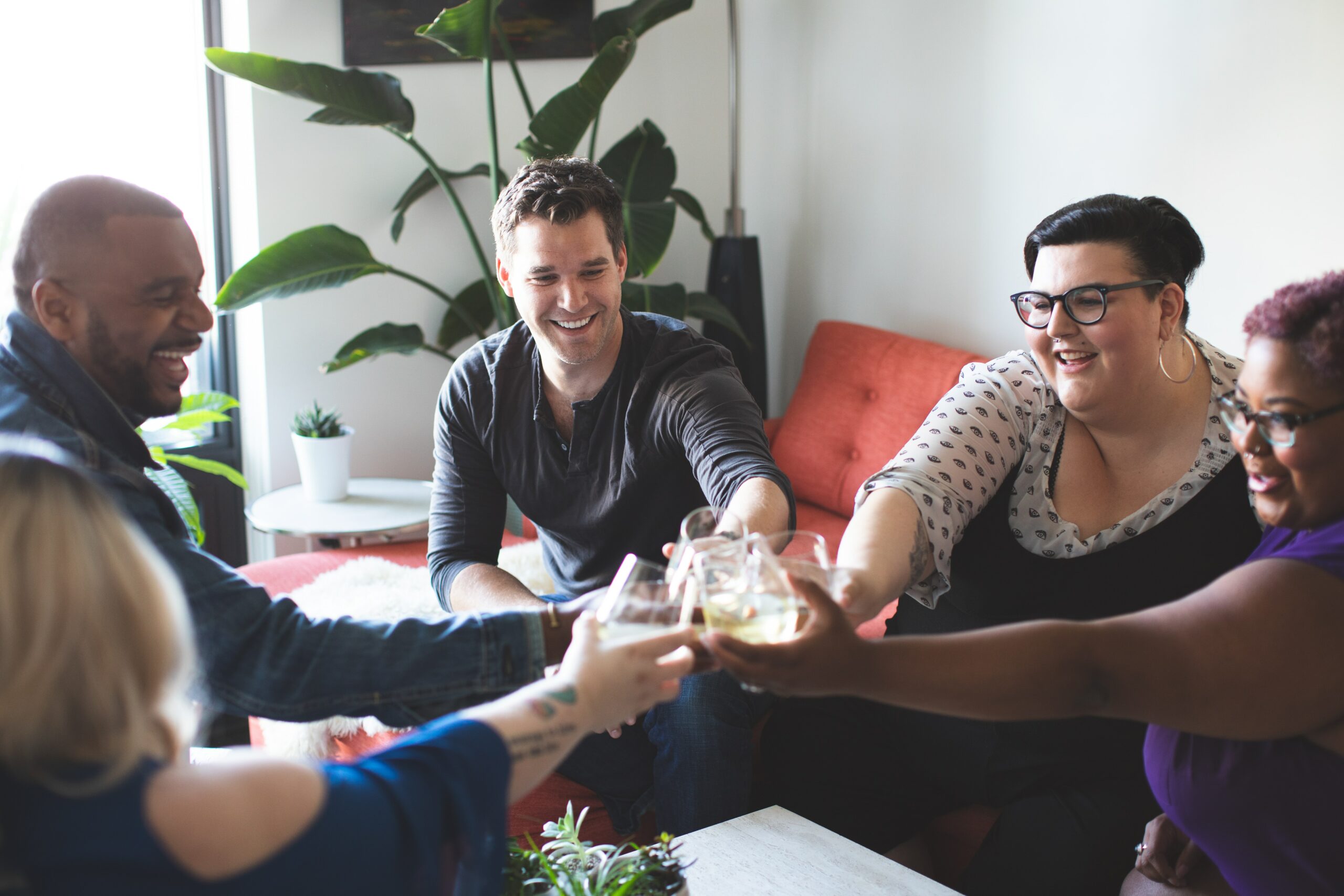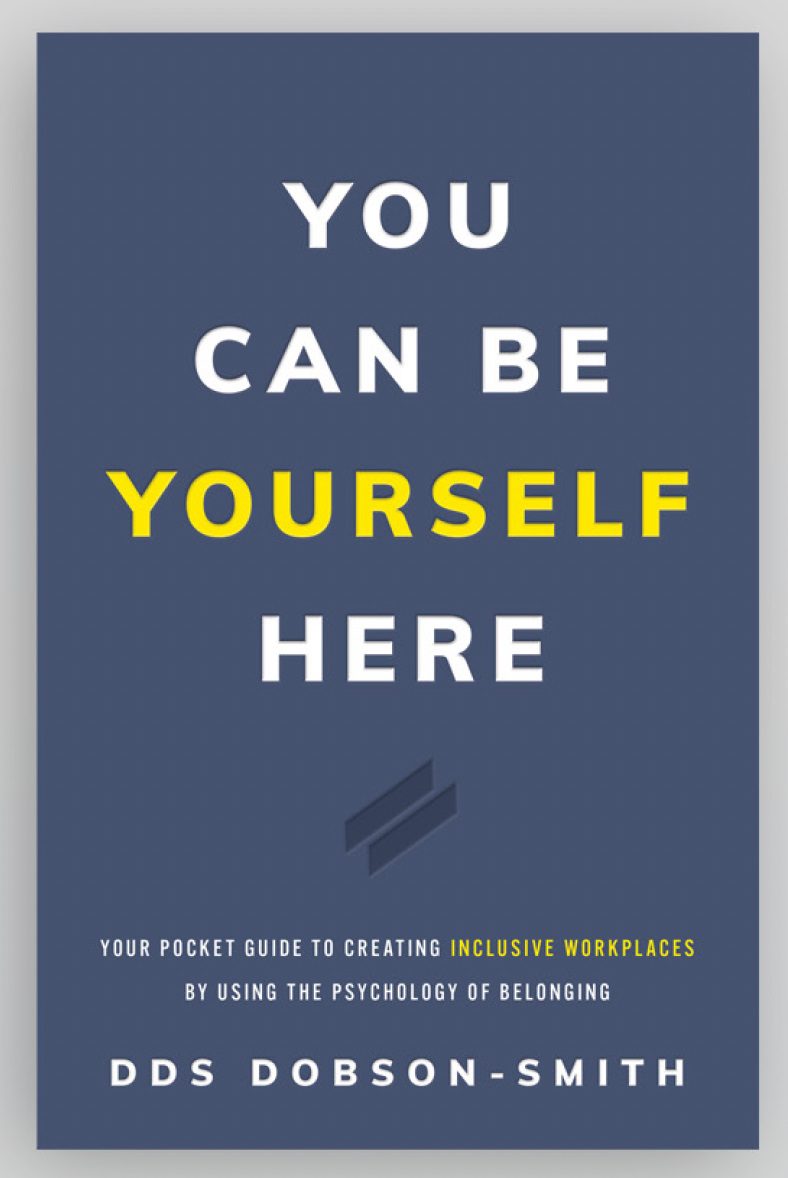with DDS Dobson-Smith (They & He)
In a quest to further explore inclusion and belonging, I had the opportunity to speak with DDS Dobson-Smith, who recently published You Can Be Yourself Here: Your Pocket Guide to Creating Inclusive Workplaces by Using the Psychology of Belonging. DDS brings an extensive career as a licensed therapist, author, executive coach, and speaker on leadership and growth, combined with their lived experience as a queer person who has navigated belonging through his life journey.
How does belonging help people grow and flourish at work and in life?
DDS explains how when we expend emotional energy on being, doing, or having something that doesn’t align with who we truly are, this comes at a cost to us: a cost to our wellbeing.
How does not being able to be yourself lead to energy drain and impact your wellbeing?
Not being able to be yourself is an energy drain on your mental, physical and emotional self.
DDS gives a personal example of being a “chubby, queer teen,” and how high school was a terrible time. “I was always on the lookout and trying to fit in: with the boys, the girls, the geeky kids, even the teachers.” DDS goes on to explain how the world of work has many correlations to the world of school.
“The world of work has many correlations to the world of school. Your principal/administration has become the board of directors or your boss. Classes or homerooms have become departments. The cliques or factions you were or weren’t part of have become people you do or don’t lunch with. Oftentimes when we experience things in the here and now that are close enough to what happened in school, our here and now experience can be impacted by our there and then programming. That happens for so many of us.”
We both agreed that things have come a long way, yet have a long way to go as the march towards inclusion and belonging continues.

“Not being able to be yourself is an energy drain on your mental, physical and emotional self.”
What does “work-life wellness” look like for you personally?
Work-life blend is the term that DDS likes to use. They explain how work is one context of life, and that your life is made up of many contexts: your family of origin, your physical health, your emotional health, your leisure pursuits, etc. These are all slices of a pie. At certain times one context of your life will be a bigger slice than other contexts, and the pie doesn’t get bigger but the size of each slice changes to accommodate.
Approaching contexts of your life in ways that are fulfilling is important. Work-life wellness or blend is about having some consciousness around the choices we are making to have different slices of pie when we want or need them.
What has been your greatest challenge when it comes to your own work-life wellness, and how have you worked at overcoming this challenge?
DDS explains that “If I don’t keep an eye on it, the work slice of my pie will become the whole pie. This tendency is deep in my psychology and will always need attention. I have a partner who helps remind me of this tendency, as well as a coach and a therapist. This helps me focus on all the things that are important in my life, not just one part (i.e., work).” Dr. Laura agrees, we all need a team of helpers to support our work-life wellness.
What is one book and one podcast you’d recommend to help people learn more about the topic of creating a culture of belonging?
DDS recommends books that educate us on the experiences of other people. Reading these real stories expands our worldviews and helps encourage new levels of empathy and understanding. In the back of DDS’s book “You Can Be Yourself Here: Your Pocket Guide to Creating Inclusive Workplaces by Using the Psychology of Belonging” there’s a list of such resources. In addition, they recommend:
The book: “Caste: The Origins of Our Discontents” by Isabel Wilkerson. Compares the caste system of India to the racial bias systems that exist in North America.
The Podcast: Scene on Radio (this changed DDS’s life). Two series in particular: Being White and Men.
“DDS recommends books that educate US on the experiences of other people. Reading these real stories expands our worldviews and helps encourage new levels of empathy and understanding.”
About DDS Dobson-Smith:

DDS Dobson-Smith is a licensed therapist, author, executive coach, speaker on leadership and growth, and a Reiki master — all in service of helping others grow and become who they are. They are the Founder and CEO of SoulTrained, an executive coaching and leadership growth consultancy. Their new book is called “You Can Be Yourself Here: Your Pocket Guide to Creating Inclusive Workplaces by Using the Psychology of Belonging”
DDS brings multi-sector global experience, decades of training in human potential, and enduring dedication to creating leaders who are worth following to everything they do.
They have notched up over 25 years of working in small, medium, and large corporations. They grew up in the hospitality industry and they started their career as a college professor teaching hotel and business management. They’ve since held a range of senior, executive, and C-Suite level roles across a host of sectors and companies.
DDS Dobson-Smith is certified as an Executive Coach by both the Chartered Institute of Personnel and Development and the Oxford School of Coaching & Mentoring. They are credentialed with the International Coach Federation, and are a coach-supervisor through the Coaching Supervision Academy.




